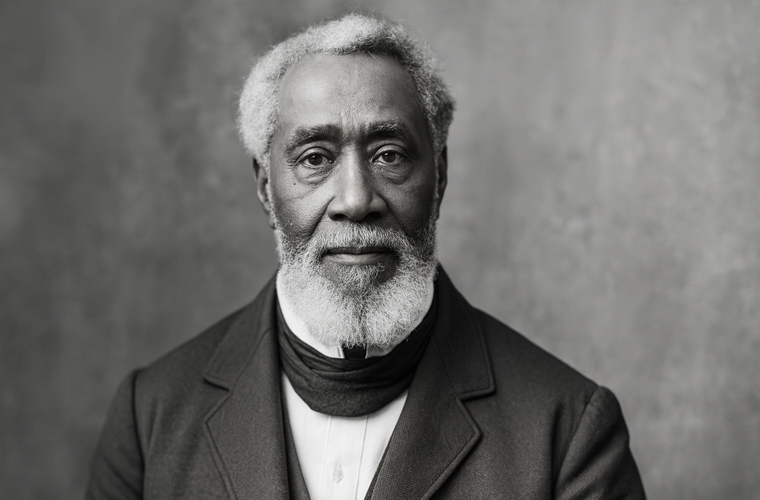William Hall, baptized William Neilson, was born on April 25, 1829, in Nova Scotia, likely in Horton Bluff (Lockhartville), to Jacob and Lucinda Hall, one of several children in a family of black refugees who settled in Nova Scotia during the War of 1812. Growing up along the Avon River, Hall was immersed in a maritime environment. His father worked as a sailor and at the shipbuilding yards in Half-Way River (Hantsport), fostering young William’s early interest in seafaring. In 1844, at the age of 15, Hall joined the crew of a vessel sailing from Half-Way River. During the late 1840s, he reportedly served in the American Navy, gaining valuable experience before enlisting in the Royal Navy as an able seaman in February 1852.
Hall served on the battleship Rodney for four years, participating in the Crimean War, including the siege of Sevastopol, where he captained a gun in the siege batteries, and the Battle of Inkerman in 1854. In 1856, he was assigned to the frigate Shannon. When the Indian Mutiny erupted in May 1857, the Shannon was dispatched to Calcutta. Hall joined a naval brigade formed from the Shannon’s seamen and marines to support the British army in relieving the besieged city of Lucknow. On November 16, 1857, Hall and Lieutenant Thomas James Young operated a 24-pounder gun under heavy fire after their crew was decimated. Their relentless efforts breached the walls of a fortified mosque, enabling British troops to enter and lift the siege. This act of bravery led to Hall’s nomination for the Victoria Cross, which he received on October 28, 1859, becoming the first black person, the first Nova Scotian, and the first Canadian sailor to earn this prestigious award. By then, he had risen to the rank of captain of the foretop.
Retiring on June 10, 1876, as a quartermaster with a certificate of good conduct, Hall returned to his family’s small farm near Hantsport, where he lived modestly with his two sisters. In a 1900 interview, he downplayed his Victoria Cross, noting its modest pension of ten pounds a year, supplemented by his navy pension of forty pounds, which sustained the family farm. In October 1901, he was briefly honored during a visit by the Duke and Duchess of Cornwall in Halifax. Hall died unmarried on August 25, 1904, in Avonport and was initially buried without honors in Lockhartville. In 1945, his remains were reinterred at the Hantsport Baptist church, and in 1947, the Canadian Legion erected a commemorative cairn on purchased land. Numerous memorials, many initiated by Nova Scotia’s black community, continue to honor William Hall’s legacy as a trailblazing hero.

